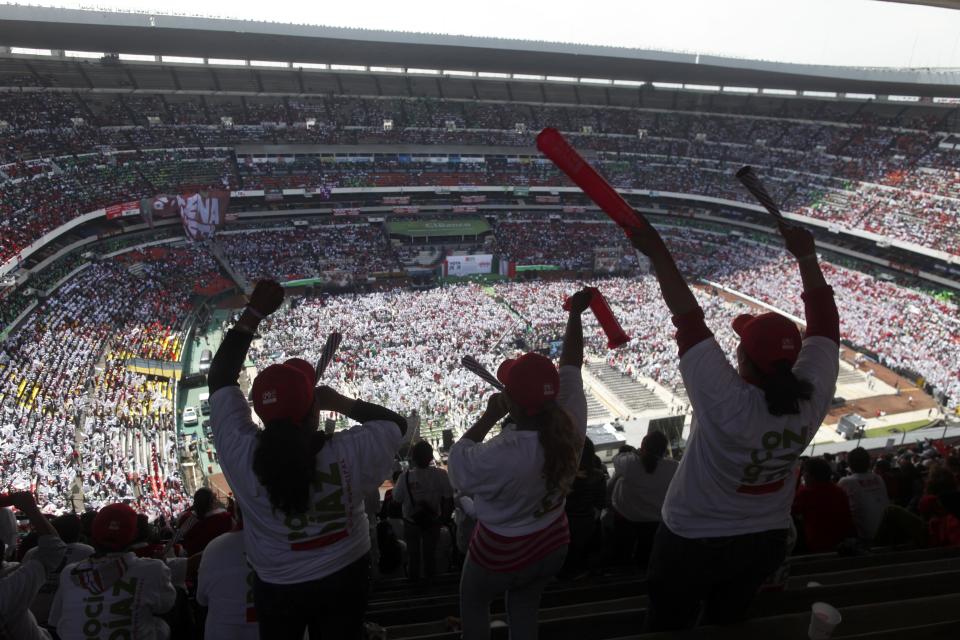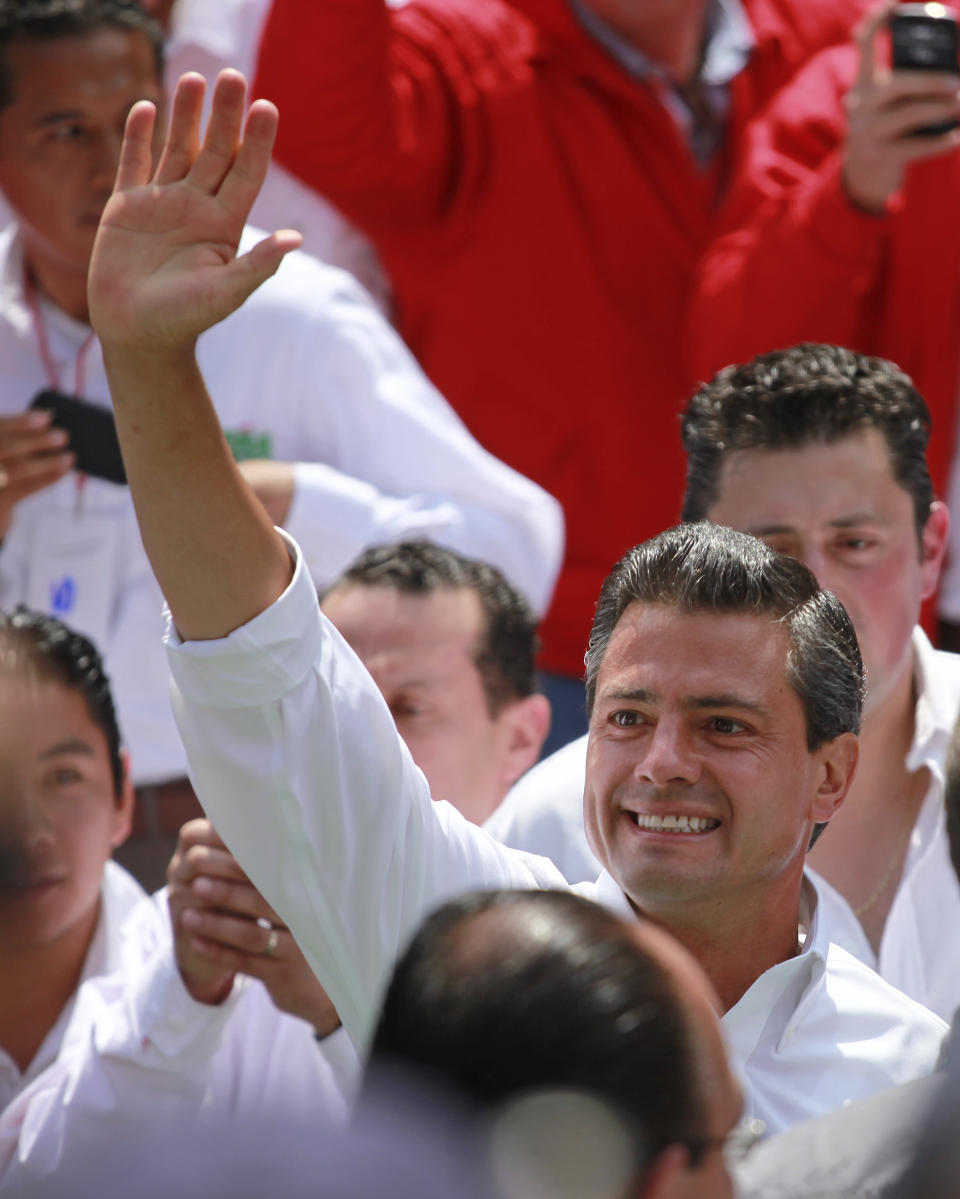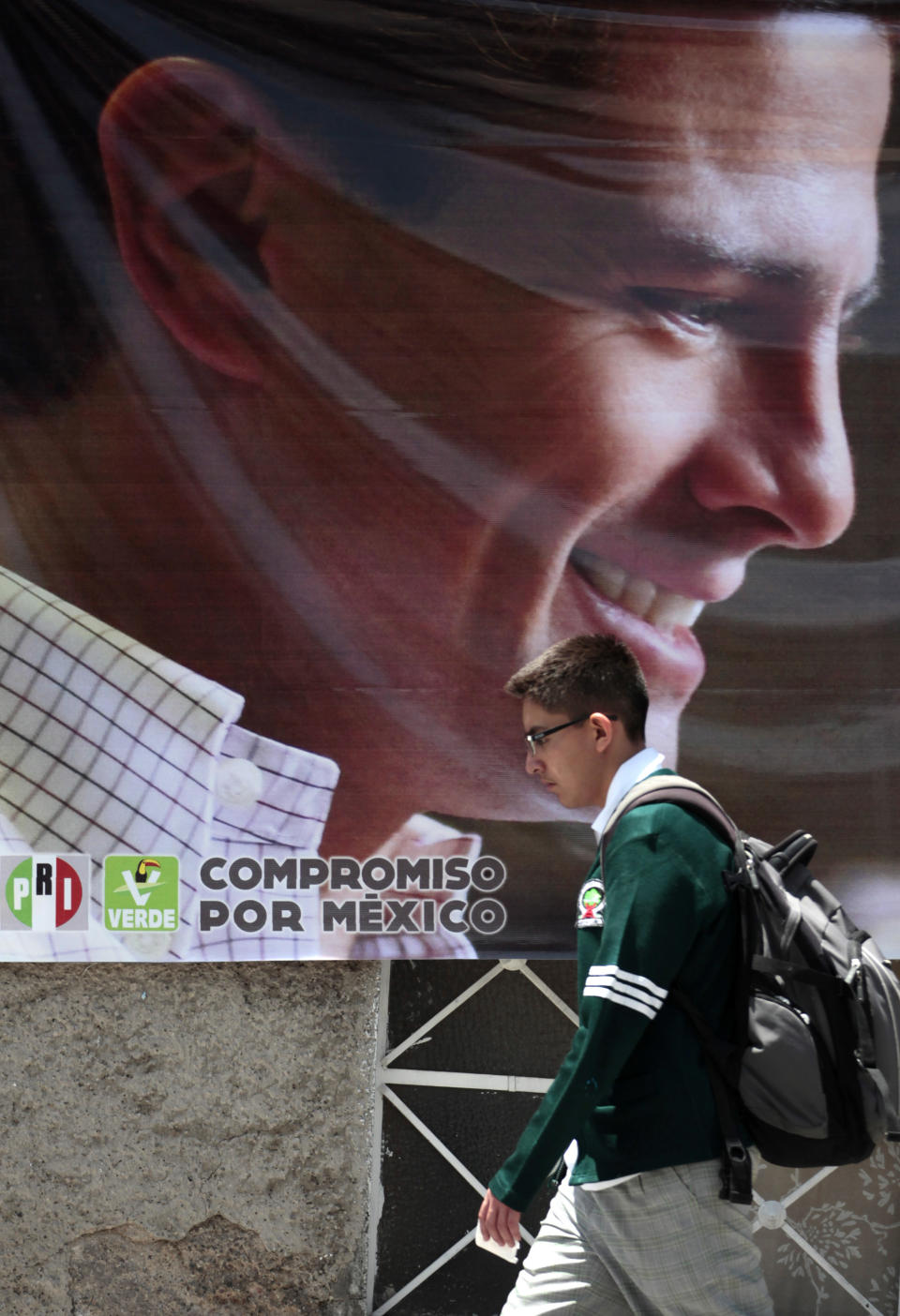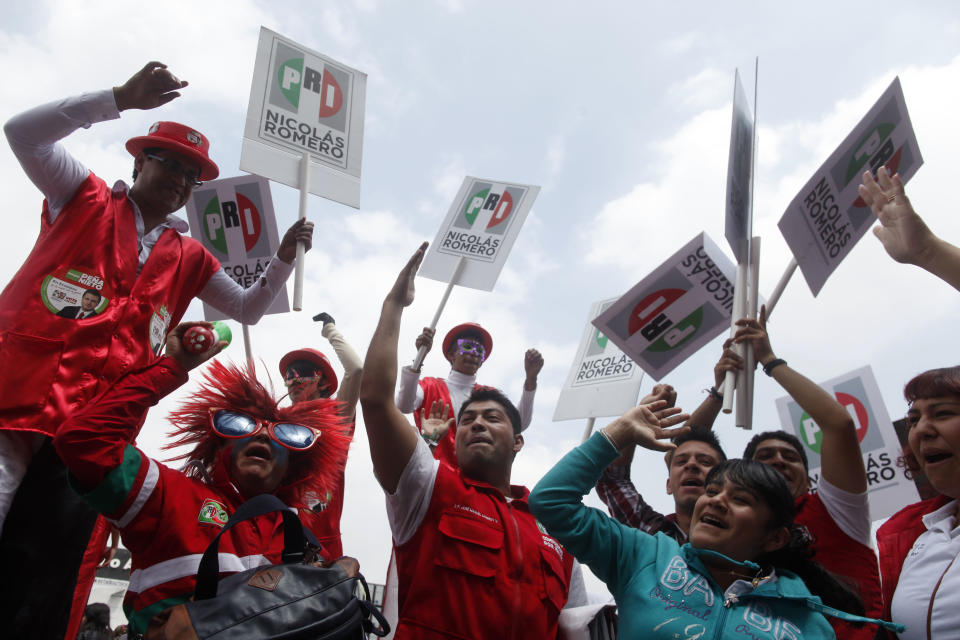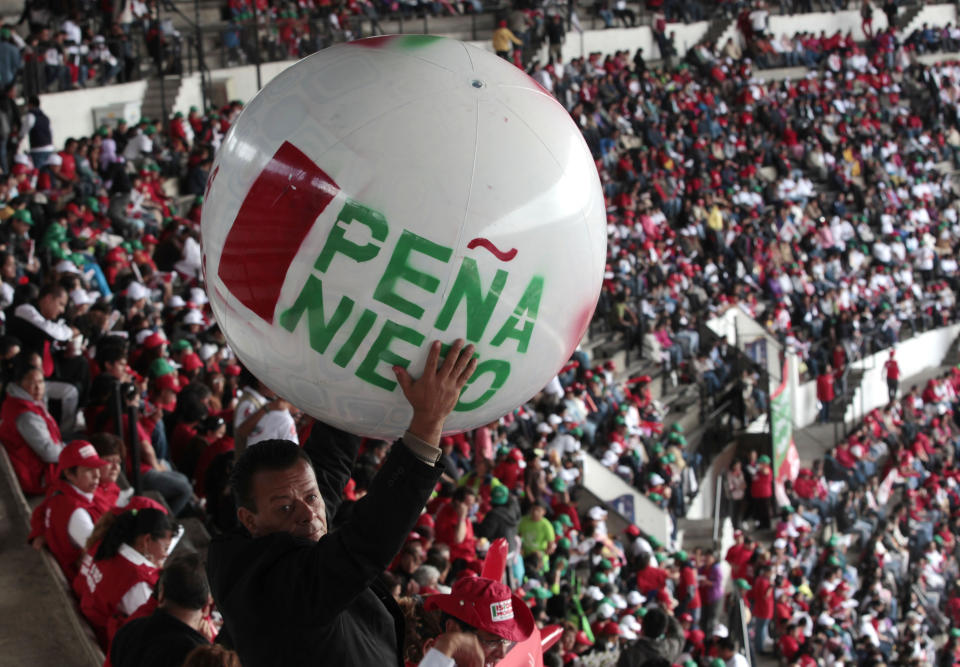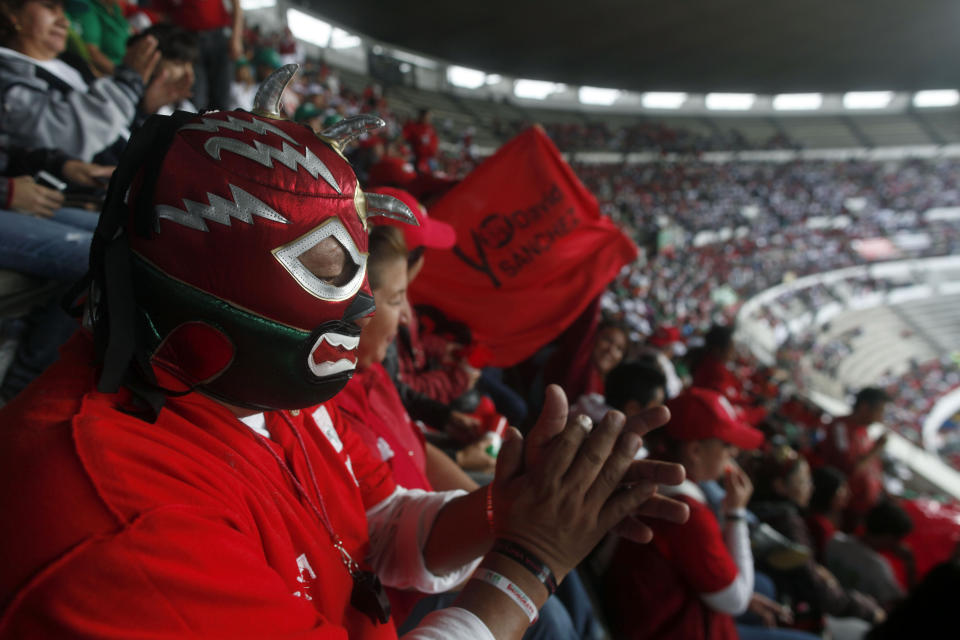Middle class will be key in Mexico elections
NAUCALPAN, Mexico (AP) — Middle class voters like Gerardo Olivo helped drive Mexico's ruling party from power 12 years ago, ending its seven decades of rule.
Now the same voters seem ready to bring back the party everyone knows as the PRI.
Olivo, a 33-year-old financial trader, said he voted for the now-governing National Action Party in the past two presidential elections, hoping it would transform Mexico. He's fed up now, though. "My position today is to go back to the PRI" he said. "I already tried the other party because it had promised change, but now I realize there was no change, or the changes were already there."
The PRI — or Institutional Revolutionary Party — held a strong lead in all of final, major pre-election polls on Wednesday, counting on the very thirst for change that led voters to pry it from the presidency in 2000.
The party had been built to run Mexico from top to bottom under the orders of the president. Unions, farm groups, professional associations were all squeezed in its paternalistic embrace. Until the last few years of its reign, those who challenged it were usually ignored or crushed.
That old PRI system gradually began to crumble as Mexico's urban middle class slowly swelled. Shopkeepers and small business owners, professionals and academics grew weary of the corruption and heavy hand of the old system. Many were less dependent on it than were the desperately poor or very rich. Fervent Catholics resented its anti-clerical ideology.
Some turned to National Action, a conservative, religiously inclined party that grew slowly over the years and that frequently joined with leftists to press for reforms. By 1989, those incremental reforms had reached the point that a PRI president, for the first time, allowed an opposition candidate to win a governor's race. Eleven years later, the presidency itself fell to National Action's Vicente Fox, thrilling many Mexicans and stunning nearly all.
Analysts say Fox owed much of his victory to middle class voters, which counterbalanced the PRI's strong hold on poor, rural Mexico. That same bloc swung behind National Action again in 2006 when Felipe Calderon narrowly edged leftist Andres Manuel Lopez Obrador, whose sometimes fiery rhetoric frightened some and who is running again this year.
Now, though, Mexicans have lived 12 years under National Action, and that party is widely blamed for a sluggish economy and tens of thousands of deaths in a militarized war on drug trafficking gangs.
"The middle class is the big prize for the candidates," said Oscar de los Reyes, professor at the Monterrey Technological Institute. "When the government does not solve their problems, they want change, but not ideological change, what they want is change so that they can maintain their status."
A survey released Tuesday by the Consulta Mitofsky polling firm showed middle class voters swinging to the PRI's Enrique Pena Nieto, who was favored by 37 percent of them. Lopez Obrador was backed by 26 percent and National Action's Josefina Vazquez Mota by just 23 percent. The margin of error was 3.1 percentage points.
Pena Nieto has vowed to tamp down drug war violence while letting salaries rise and ensuring medicine is available to all, though he has been short on specifics. He has made change a watchword of his campaign.
Lopez Obrador has tried to woo middle class voters with promises to govern for all, rich and poor alike. But many stability-minded Mexicans still resent his challenge of the 2006 election result, when he mounted protests that gridlocked vast swathes of the Mexican capital for weeks.
As elsewhere, "middle class" is largely a state of mind in Mexico, a nation of 112 million people that is home to the world's richest man and to tens of millions who still struggle to find enough to eat.
Some define middle class here to cover people making more than $10 a day. Others say it applies to people who have cars, cable TV and some education. Whatever it is, many Mexicans say they're part of it.
"I am convinced that Mexico today is mostly a middle class country, but this doesn't mean that there are no poor people," said Luis de la Calle, an economist and former commerce undersecretary. "If they consider themselves to be middle class, well, who are we to tell them they're not? Being middle class is a question of attitude."
Olivo, who earns five figures a month and lives in Mexico City's upscale Pedregal neighborhood, considers himself middle class.
So does Mauricio Hernandez, who says he makes an average of about $1,400 a month from his used car lot in Naucalpan, a suburb of some 800,000 people on the edge of Mexico City. It's also part of the state that Pena Nieto governed.
Like many his age, the 62-year-old Hernandez has always backed the PRI and he considers Pena Nieto "a hard-working man" who has had "good achievements and has been able to project them and make them work."

